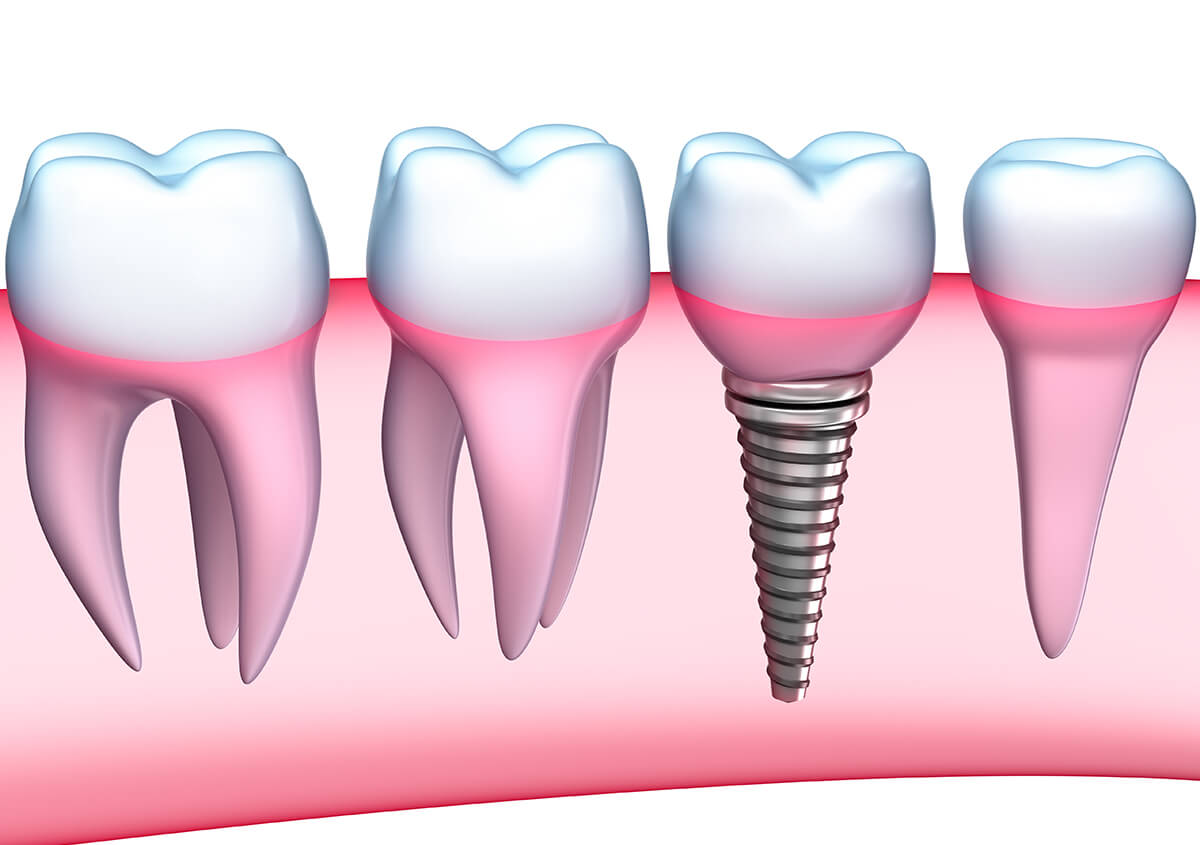
08
Jul
Rebuild your Smile with Natural-Looking Implants

If you have lost teeth, even if it’s not in the smile zone, it’s good to cover that gap immediately. Leaving gaps in your mouth affects not only your appearance but also your oral structure and functionality. Due to missing teeth, other teeth start shifting and loosening, possibly losing yet another tooth. Besides, that gap affects your chewing ability, slurs speech, and causes bone loss.
While you can replace your missing teeth with dentures or bridges, dental implants from Positive Image Dental are the closest thing to your natural teeth. Dental implants mimic your natural teeth from looks to performance—and they last for life!
The Dental Implant Procedure
Want to replace your missing tooth with a dental implant? Here is what to expect when you see us for implant-based restoration.
- Implant consultation: Getting dental implants starts with a consultation with an implant dentist. The objective is to determine the health of your gums and teeth. Do you have cavities? What about gum disease? Before proceeding with the dental implant procedure, we recommend treating these ailments because they can compromise the success of the dental implant. Your dental consultation doesn’t end there. The next step is to determine the health of your bone. Do you have enough jawbone to support an implant? If not, we recommend dental grafting or mini dental implants.
- Dental implant surgery: This procedure involves surgically inserting a titanium screw into your jawbone. Before the process, you are fully anesthetized for maximum comfort. Next, we drill your jawbone, insert an implant post, and suture the surgical site to kick start the healing process.
- Healing: Your implant post needs about 4-6 months to heal and fuse with the jawbone. Once the fusion happens, your implant post is locked in place to support one or more tooth prostheses.
- Implant Impression: Our dental team performs a second minor surgery to install an abutment (connector) after healing and takes an impression to tell our lab how to build your tooth! The abutment is attached to the implant post and protrudes above the gum line to support a crown or other tooth prosthesis.
- Crown placement: After 4-6 weeks it’s time to complete the dental implant process with a crown, bridge, or denture. Now you can enjoy your newfound smile, which looks and functions like your natural teeth.
BEFORE AND AFTER RESULTS

While traditional dental implants follow the above steps, you can get dental implants in one appointment, popularly known as “teeth in a day.” With same-day dental implants, the implant post, abutment, and tooth restoration are placed in one day. This means you can use your new teeth after leaving our dental clinic.
Benefits of Dental Implants
If you are missing teeth, a dental implant isn’t just limited to a single tooth replacement—implants are also beneficial to fully edentulous patients. The other benefits of dental implants are:
- They last for life with proper oral hygiene.
- Taking care of dental implants isn’t any different from maintaining your natural teeth.
- Dental implants prevent the surviving teeth from shifting.
- Implant-based restorations prevent bone loss.
- They restore your full oral functionality, close to having 100% natural teeth.
- Implants restore your confidence and esteem.
Ready to restore your smile with natural-looking dental implants? If you are in Bermuda, please dial (441) 292-2312 to book an appointment with Positive Image Dental for durable and affordable implant dentistry services. Our dental team of Drs. Ian Campbell, Christopher Allington, and Lara Loescher have the experience, skills, and technology to install implants with precision and lifelike results.





